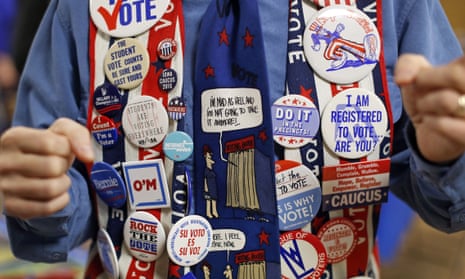Do you trust the people? Being able to answer “yes” has long been taken as a litmus test of the depth of your commitment to democracy. In a democracy, the people, like customers, may often be wrong, but must always be treated as though they are always right. That’s why Hillary Clinton’s biggest campaign gift to Donald Trump was her comment that half of his supporters belonged in a “basket of deplorables”. “No one who has such a low opinion of the American people can ever be elected as their president,” Trump said.
In the UK, when David Cameron recently resigned as prime minister he was not ashamed for having called a referendum he lost but “proud of the fact that in these islands we trust the people for these big decisions”. This was one Cameron line his successor Theresa May was all too happy to keep faith with. “We know there is no finer accolade than to say David Cameron put his trust in the British people,” she said. “And trust the people we will.”
But history suggests it is unwise to trust any politician’s claim to be trusting the people. In 1906 Winston Churchill even had the gall to assert “Trust the people” was his motto in a speech defending the hereditary monarchy and House of Lords. Of course there is a sense in which democracy is about trusting the people. The mistake, however, is to assume that this trust is in the majority’s ability to reach fair and wise decisions about specific policies. That kind of trust is not just unjustified, it’s borderline insane. No sensible person thinks majority opinion is a good guide to best practice in health, education, engineering, or pretty much everything else. So why would public policy be any exception?
Plato and Aristotle get a bad rap these days for their rejection of democracy. But the substance of their objections were spot-on, and not just because they saw that majority opinion is not the same as wisdom. For Aristotle, democracy’s fatal problem is that it divides society by pitting the majority – however slender – against the minority. We’re seeing this playing out in America, where the divide between Republican and Democrat has never been wider, but in elections the winner takes all. We’re also seeing this in Britain, where cosmopolitan liberal cities and conservative communitarian towns and villages view each other with incomprehension.
Why then has democracy actually served us so well? Put simply because it is not democracy as conceived by its ancient Greek critics. What we call democracy is actually a system of representative government which leaves most big decisions to elected leaders. Crucially, it is also a system in which the rule of law is more important than the will of the majority at any given moment. That’s a safeguard Aristotle didn’t anticipate. Indeed, he argued that democracy was opposed to the rule of law because he thought it meant the will of the people transcended the law.
To say democracy is about trusting the people is therefore simplistic in two ways. First, for democracy to work it requires the people to trust those they elect to make decisions. Demanding that politicians instead trust the people to tell them exactly what is best turns this on its head, undermining one of actual democracies’ greatest strengths.
Second, our democracies are built around constitutional arrangements that make major change difficult precisely because it does not trust the people or the government to be reliable or constant.
Western democracy is built around a tripartite trust: trust in the people to hold government to account and to set the general direction of policy, but also trust in politicians to make specific decisions, and in institutions to provide safeguards against rash or tyrannical actions. What we are seeing all over the western world are the last two pillars being torn down, leaving all trust resting on the people.
This is rightly called populism, not in the American sense, but as understood in the rest of the world. Populism is generally defined as a mode of politics in which the will of the people is seen as clear, virtuous and homogeneous. Populist politicians simply promise to do what this will commands, ignoring or denying the fact there are different, competing interests in society, not just those of the majority. Populists do not try to square the simple desires of the electorate with the complex realities of society but pretend that what seems simple is simple and that anyone who says otherwise belongs to an obfuscating elite looking for excuses to defend its own interests.
Those who oppose populists are accused of being anti-democratic because in a sense they are: they reject pure, direct democracy in which the people dictate policy, as did Plato and Aristotle. But they are completely on the side of the very successful form of democracies that we have developed, systems of government that are much better than any imagined by those great philosophers. We trust the people to play their part, but not to run the whole show.

